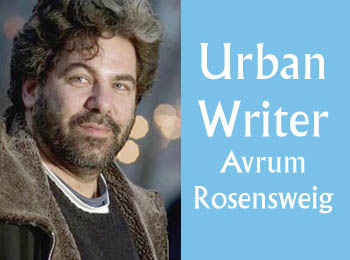We once believed that partners in a relationship had to share the same religious values throughout their lives in order to survive. Today, that paradigm is being challenged. The following are examples of mixed spiritual relationships, the first a Thornhill, Ont., couple who met at different spiritual times in their lives and came together, the second, a midtown marriage that began on the same footing, then diverged in practice and beliefs.
Couple 1
When my husband and I met, I was secular. He was Orthodox. We got married. I knew having a kosher home would be a given. We cleaned it together. I kept an open mind and was intent upon learning every day. The process was slow.
My children were five and six when we met. My girls were thrilled we koshered our home and were more Shabbat observant. These practices have enhanced our closeness.
The shul community has offered us extreme warmth and wonderful character-building classes that I look forward to. Shul has been a really positive experience for my kids after going through their parents’ divorce.
My husband understands we grow at our own pace and doesn’t believe I should change for him. If I go for a manicure on Shabbat, he doesn’t judge me. He is pleased I am doing something nice for myself. I would never turn on the television. I admire his commitment to Jewish law.
My mother’s husband observes Shabbat. She does not. She only eats kosher. Their marriage is probably stronger than most. They taught me the key is to grow at the same time in your own way.
My goal is to never say never. With my husband by me, I can embrace opportunities I never had in my secular childhood.
Couple 2
We started to date at 19 (15 years ago). We were at a similar spiritual place. After studying eastern philosophy and a trip to Israel, my husband started putting on tfillin. He found what intrigued him in the eastern world was available in his own backyard.
I took on more traditions over the years, but it didn’t feel authentic. I needed to pursue my own journey while respecting and honouring his. It was a challenge negotiating our differing spiritual journeys while staying close and together.
We had become more observant before we had children, now ages five and three, so they haven’t known anything different. It has, however, been confusing for them since we started doing things differently, but they understand what we do together as a family is consistent and important. We teach them there are many ways to be meaningfully Jewish – there is no right or wrong.
At first, we felt a different level of observance would separate us. We tried to do everything by the same rules. We found this stifling and were much happier when we could honour each other’s needs. We connect on many common interests, like Mussar and yoga.
* * *
Ultimately, when each other’s happiness is the utmost priority, things fall into place – not easily, but eventually they do.
There are many couples in a similar situation. However, each one is unique. The successful couples avoid persuasion and alternatively seek understanding and respect. Eventually, they may come back to the same path, or maybe not. Another common “rule” is: consistency for the children. They mustn’t feel that Judaism is a point of conflict, or they will likely grow to have negative associations with it. I am not sure there is a prescribed “lifestyle” out there.
